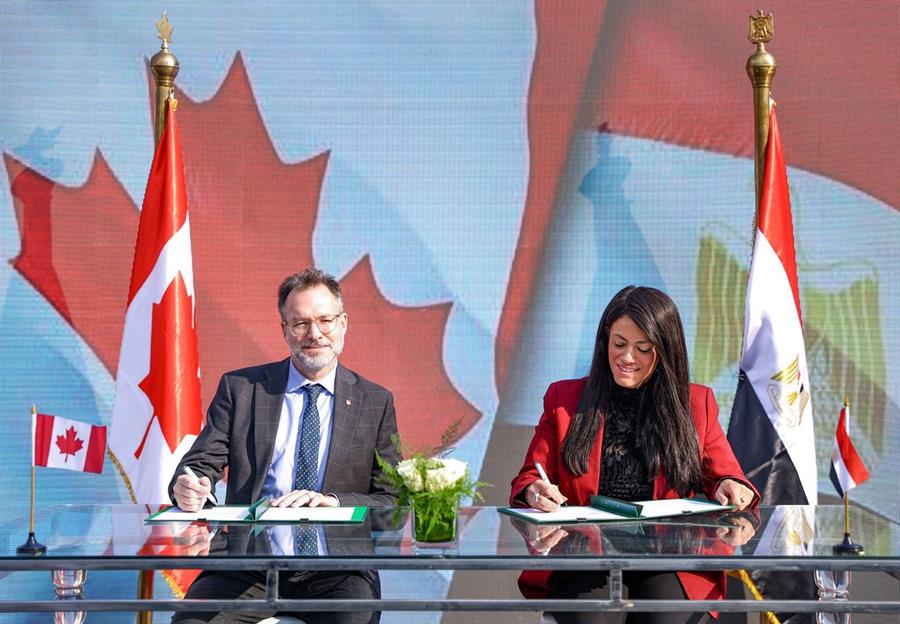The Ministry of Planning and Economic Development participates in the final round of consultations to prepare the new country strategy with (EBRD)

22 October 2021
The Ministry of Planning and Economic Development, represented by Dr. Ahmed Kamali, Deputy Minister of Planning and Economic Development, participated in the final round of consultations to prepare the new country strategy with the European Bank for Reconstruction and Development (EBRD) for the period from 2021-2026.
Dr. Ahmed Kamali, Deputy Minister of Planning, reviewed a number of the Egyptian government's efforts regarding the financial inclusion process, as well as the equitable distribution of investments across all governorates of the Republic, especially public investments.Kamali stressed that there have been radical changes in terms of the per capita share of public investments in the different governorates, explaining that the per capita share of those investments was completely different in the major governorates such as Cairo, Alexandria, and so on.Dr. Ahmed Kamali referred to what the Ministry of Planning and Economic Development had done two years ago in formulating a financing equation that contributes to directing investments to governorates according to their development needs in an objective and fair manner, based on several criteria that included the poverty rate and the level of development in those governorates.Kamali added that there is a noticeable improvement in the government's distribution of public investments to address development gaps across Egypt.Kamali talked about the competitiveness index in the governorates, which will be launched next year, in cooperation with non-governmental institutions, the private sector, and academics, explaining that it represents an objective indicator to measure the competitiveness of all governorates, which is a way to contribute to improving the inclusion and competitiveness of the governorate.Kamali also touched on the importance of digital transformation and information technology.
Kamali added that the Organization for Economic Cooperation and Economic Development is a member of the European Bank for Reconstruction and Development. Kamali stressed the importance of the country program between Egypt and the Organization for Economic Cooperation and Development, for which a memorandum of understanding will be signed in Paris between the Egyptian government and the organization.Kamali added that several important topics have been placed at the top of Egypt's priority agenda, represented in five main topics, including economic stability, structural reform, information technology, governance and anti-corruption, statistics, in addition to sustainable development. Kamali explained that these topics represent areas of cooperation for the country program, which will continue over two or three years.Kamali concluded by talking about the process of modernizing Egypt's Vision 2030, which was carried out in partnership with civil society, the private sector, and academics. Kamali explained that the updating process started nearly three years ago and was affected by the Corona pandemic, but the challenges that appeared in the past three years were included, adding that the Vision 2030 update will be launched soon.Kamali also confirmed his interest in the fact that the European Bank for Reconstruction and Development's portfolio amounted to 70% of the private sector.The meeting was attended by senior officials from more than 20 government agencies and institutions, including the ministries of tourism and antiquities, water resources and irrigation, transportation, housing, local development, environment, and the Small, Medium, and Micro Enterprises Authority.









